Top Culinary Schools in Italy: Study at the Best Italian Institutions
No need to travel to France for your culinary education! Italy offers world-class culinary schools that blend rich traditions with modern techniques. Let's take a closer look at costs, programs, and what makes these schools stand out.
loading...
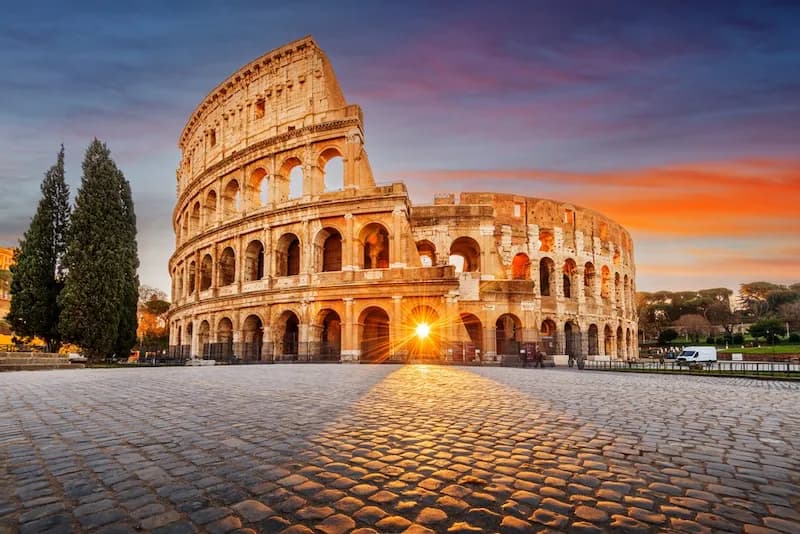
The Colosseum in Rome, Italy. Italy is home to some of the best culinary schools in the world.
For culinary students, Italy offers a unique mix: centuries of tradition paired with cutting-edge innovation. Regions like Tuscany and Florence combine world-class culinary schools with daily immersion in markets, wineries, and artisanal food culture.
Italy is home to hundreds of schools that open their doors to international students who may not yet speak Italian but want hands-on culinary training. There are about 264 institutions across the country offering professional cooking and pastry programs.
But why Italy, you may be wondering, instead of France?
While France and other countries such as the United States, Mexico, and Spain have top tier culinary schools, you’ll find that the culinary schools in our list emphasize Italian cuisine and style of cooking.
If that is one of your motivating factors, then studying culinary arts in Italy makes a lot of sense.
That said, your next set of concerns might include language of instruction, tuition, and overall, how to choose among the many culinary schools in Italy.
In this article, we’ve selected what we consider the 7 top culinary schools in Italy that are worth your consideration.
With each listing, we’ve provided information on language of instruction, tuition, quality of the faculty, and other relevant details that will help you in your decision to attend culinary school in Italy.
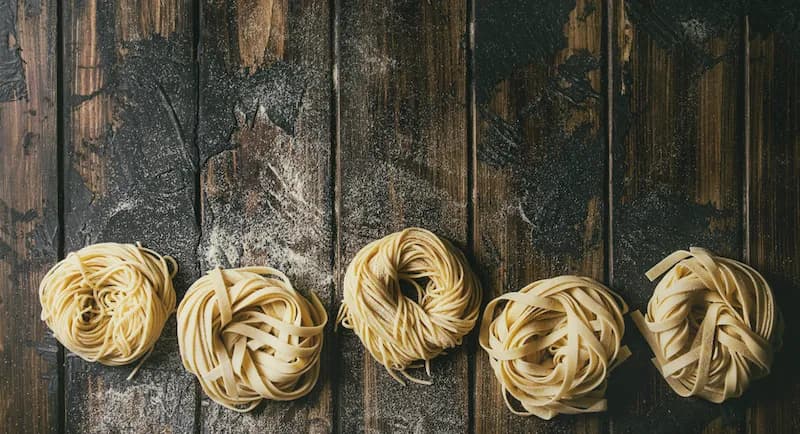
Italian cuisine ranges from pasta to seafood and is known for its bold flavors and fresh ingredients.
7 Best Culinary Schools in Italy
Let's now have a look at some of the best culinary schools in Italy.
1. ALMA - The School of Italian Culinary Arts
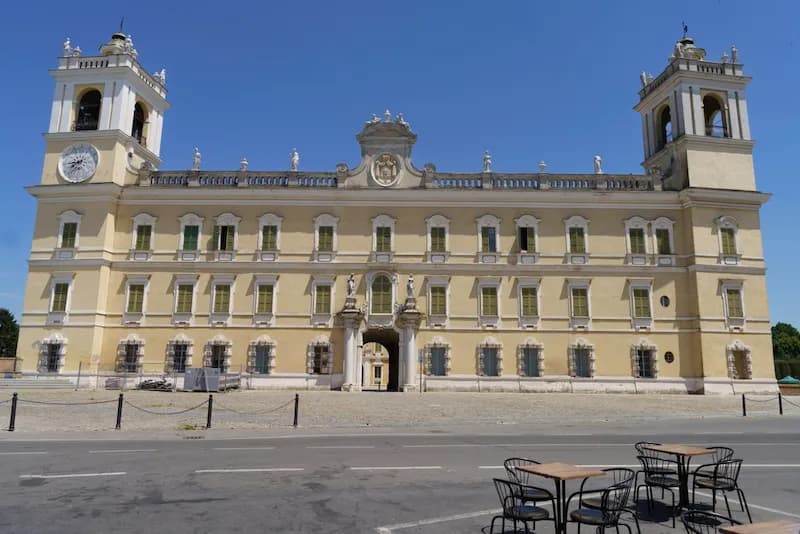
The Palazzo Ducale di Colorno is a stunning historical building that serves as the main campus for ALMA.
Key Points
Location: Colorno, near Parma (Italy’s Food Valley)
Languages Offered: English (with support for international students)
Website: https://www.alma.scuolacucina.it/en/
Tuition: approximately €30,000 per year
ALMA describes itself on its website as being the leading Italian culinary academy. It is situated in the Ducal Palace of Colorno, close to Parma, and is a yearly training ground for more than 1,000 students. The institution has chefs, patissiers, and sommeliers of the highest level who are the very essence of Italian food culture.
Notable Alumni:
ALMA alumni are making their mark across the globe, often in Michelin-starred kitchens. A prime example is Allen Huynh, a Canadian of Vietnamese origin, who, after completing his training at ALMA, secured a position at Osteria Francescana in Modena under the guidance of world-renowned chef Massimo Bottura, ranked among the best chefs in the world.
Key Programs
✅ Italian Culinary Program (1 Year):
From Italian Cooking Fundamentals to Advanced Professional Techniques — The full-immersion course. It integrates classroom education, field trips, and a four-month internship in some of Italy's top restaurants.✅ Italian Pastry Program (4 Weeks):
is a more condensed and more intensive course solely focused on the basics of Italian pastry-making, especially for the upcoming pastry chefs.
Language of Instruction
English is the language for international programs, but students are still encouraged to learn the Italian language. A student with an intermediate level of English should be able to enroll.
Tuition & Living Costs
The tuition fee is around €30,000 per year, and there are partial scholarships available for up to 15%. Parma is more affordable than Florence or Rome, with living expenses ranging from €700 to €1,500 a month.
Admissions
ALMA is open to taking applications all year round, but it is advised that an applicant submit their application 3-4 months in advance. Further details: ALMA Culinary School.
2. Italian Chef Academy (Rome)
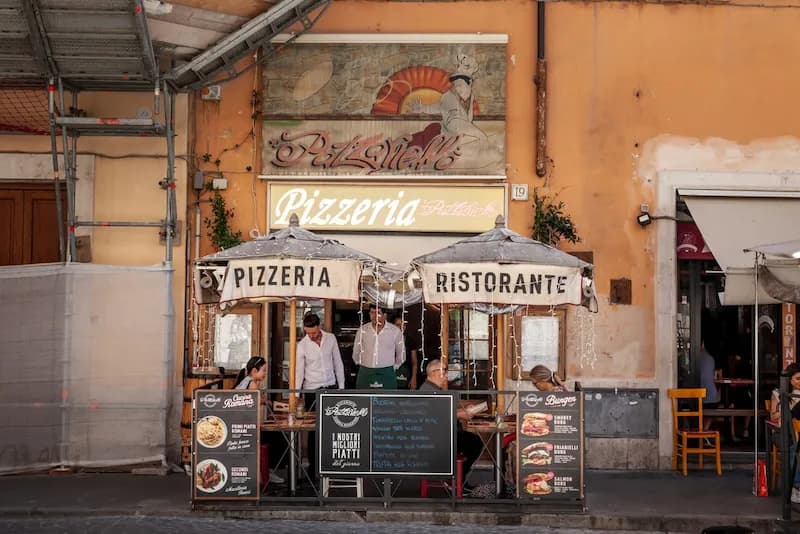
Pizzerias are a common sight in Rome, the eternal city.
Key Points
Location: Rome
Languages Offered: Italian, English
Website: https://italianchefacademy.it/en/
Tuition: up to approximately €10,000 per year, but as low as €2,000 for short term modules
Just in a short time, Rome's Italian Chef Academy has established a remarkable reputation all over the world. According to the school, they are first in WACS (World Association of Chef Societies) rankings in Italy and seventh overall as a training school by the Italian Chef Association. Apart from this, they also highlight their excellent job placement statistics as they say that their students have the highest employment after graduation from the Italian culinary schools.
The school guarantees job interviews to the students who complete the International Module 4, thus graduates are directly connected with employers who hire them.
Tuition and Costs:
The Italian Chef Academy can schedule a program as per your convenience, which can be anywhere from one month to one year. The tuition goes from €2,000 for short-term modules to €10,000 for a year-long comprehensive program including internships. Thus, it is the most affordable option among the top Italian culinary schools. The school provides payment plans: 30% at the time of registration, 30% on the first day, and 40% on the day of the start within one month of starting.
Program Duration and Structure:
The Master in Culinary Arts is a program that requires 1,000 hours of practical instruction and also guarantees internships at Michelin-starred restaurants, Relais & Châteaux properties, and five-star resorts. The classes are normally held from Monday to Friday and are quite intensive.
Language of Instruction
Programs are available in both Italian and English. The school encourages international students and has support services for those coming through the Italian bureaucracy and the visa process.
Application Process
Before enrollment in the Italian Chef Academy, a preliminary interview is required. It can be in the form of a face-to-face at their Rome campus or a video call. Reach out to them through their official website or WhatsApp at +39 388 396 6408.
3. Apicius International School of Hospitality
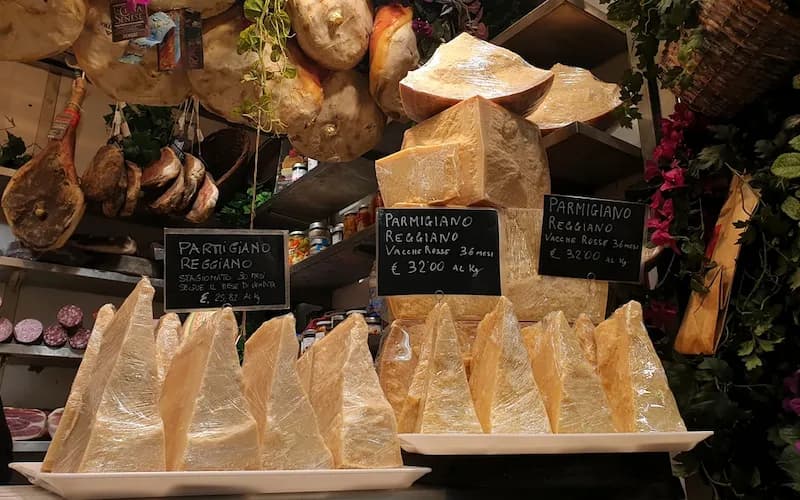
Culinary students at Apicius International School of Hospitality learn about authentic Italian ingredients by visiting markets.
Key Points
Location: Florence
Languages Offered: Italian, English
Website: https://apicius.it/
Tuition: up to approximately $14,750 per year,
Apicius International School of Hospitality is one of the most popular culinary schools in Florence, Italy, attracting students from North America, Latin America, and Asia. It was established in 1997 and is known as the first international hospitality school in Italy. The school, which is part of the Florence University of the Arts (FUA) consortium, is committed to blending culinary education with academic study. Apicius, the International School of Hospitality at Florence University of the Arts became the first institution in Italy to receive the Worldchefs Recognition of Quality Culinary Education.
Due to Apicius’s location in Florence, students have the chance to be part of the food and wine culture of Tuscany. Students are able to access the Mercato Centrale, local butchers, cheesemakers in the Apennines, and Tuscan wineries and olive groves directly. Also, the restaurant and tourism industries in Florence offer an abundance of internships and work opportunities for students.
The school runs Ganzo, a student-operated restaurant, gallery, and studio for the arts. In this way, students can learn kitchen management, service, and customer interaction in a professional environment, albeit in their training phase.
Academic Programs
✅ Bachelor’s Degrees (4 Years): The school offers a bachelor’s degree with culinary arts, baking and pastry, hospitality management, food and wine studies, and wellness, health, and nutrition as a major.
✅ Certificate Programs: There is an option of associate level only in hospitality and tourism, and the school offers a one-year and a two-year career certificate program.
✅ Workshops & Short Courses: Besides the students, people can take advantage of specialized culinary classes, food and wine lectures, and market tours.
Program Structure
The duration of the bachelor’s degree is four years, adhering to the academic calendar. Typically, career certificate programs last for one or two years. Every semester is divided into three main components: classroom instruction, hands-on training, and experiential learning.
Language of Instruction
All programs are in English. For that reason, Apicius is a non-Italian-speaking international student’s first choice.
Tuition & Costs
The tuition varies with the program type and its duration. The certificate programs cost less than the full degree programs. Living in Florence is not cheap; however, it is quite affordable with a monthly rate that ranges from €900 to €1,200, which are inclusive of housing, food, and transport.
Admissions
The application process is in line with the Apicious university schedule, and the applications should be sent up to several months before the program start date. Furthermore, information about the same is found on the Apicius official website.
4. Florence Culinary Arts School (FCAS)
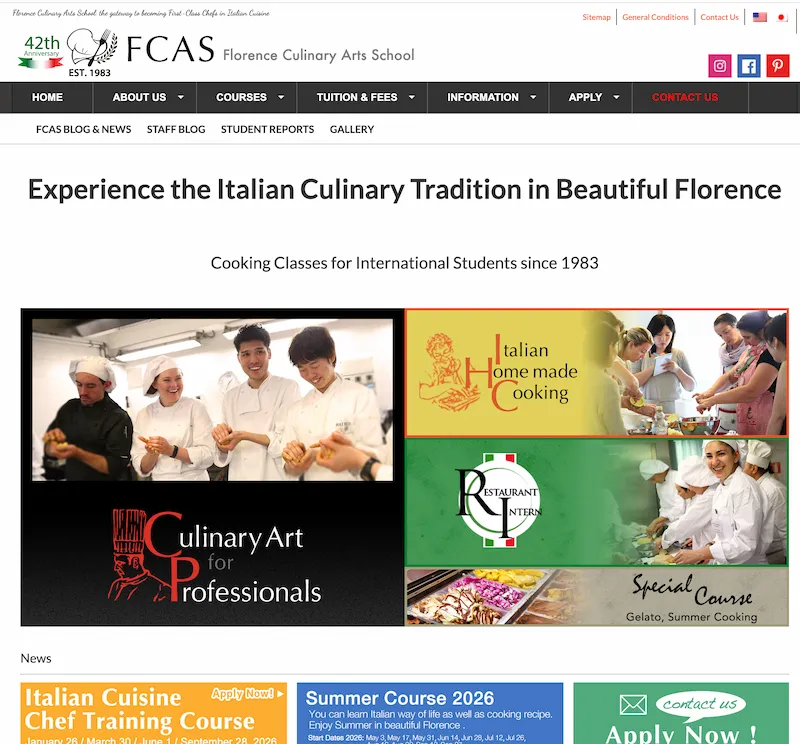
The homepage of the Florence Culinary Arts School's website.
Key Points
Location: Florence
Languages Offered: Italian, English
Website: https://www.florenceculinaryschool.com/
Tuition: up to approximately €11,600 per year
Florence Culinary Arts School (FCAS) is well known for its smaller classes and the one-on-one instruction it provides. In comparison to big universities, it focuses on mentorship and directly working with the product. The school’s philosophy is immersive—students are urged to think of Florence as their classroom by going to markets, food producers, and local festivals.
FCAS has relationships with local food establishments through a Restaurant Internship Program, which is considered one of the School's main assets. The externships last between 4 and 10 months and are open to Tuscan restaurants, trattorias, pizzerias, patisseries, and gelaterias.
Programs Offered
FCAS provides the option to customize Italian Cuisine Chef Training programs of 6, 12, or 18 months. Training is concentrated on Tuscan cuisine, the old style of Italy cooking and food culture. The program, along with the Italian language and Sommelier training is also aims to build up the students' skills in all aspects.
Special Courses
A student who wants to learn fast and efficiently can use short seasonal courses that are FSAC exclusive. The Christmas program is especially popular:
✅ One week: €1,450 (no housing) to €1,850 (with single-room housing).
✅ Two weeks: €2,320 (no housing) to €2,900 (with single-room housing).
Tuition & Costs
The 12-month program costs €11,600 in total, which is made up of a enrollment fee and €9,600 tuition. Other expenses will mostly be for housing and personal expenditures in Florence and will differ from person to person.
Language of Instruction
Italian chefs conduct the classes and provide free English interpretation, which is meant for foreign students.
Admissions
Programs are available in September, January, and March each year. You will be able to download the application form and access all the necessary information on the Florence Culinary Arts School website.
5. Italian Culinary Institute (ICI)
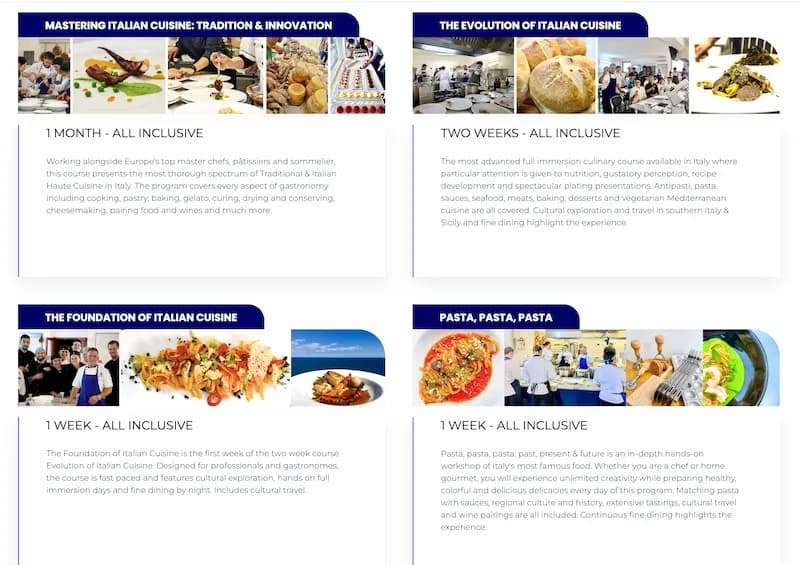
A webpage of the Italian Culinary Institute's website that lists courses.
Key Points
Location: Stalettì, Calabria (Baia dell'Est Hotel)
Languages Offered: Italian, English
Website: https://italianculinary.it/
Tuition: approximately €9,995 per person
The Italian Culinary Institute (ICI) for Advanced Culinary and Pastry Arts is in Stalettì, Calabria, and overlooks the Mediterranean coast from the Baia dell'Est Hotel. The institute is famous for its full-immersion programs in elevated Italian cuisine, which are delivered by a team of Master Chefs.
The Italian Culinary Institute offers short duration programs that last up to a month. As such, the school is not intended for culinary students seeking a formal degree, but is more designed for food enthusiasts, professionals, and chefs who want to enhance their skills in Italian cuisine in an immersive, smaller setting.
ICI's programs are all-inclusive, which means that lodging, food, travel, and cultural tours are covered. Students go to local markets, cheesemakers, wineries, and honey farms. Matera and Alberobello trips, which are UNESCO World Heritage sites, are also part of the program. This setup makes budgeting easy and guarantees total immersion in the food culture of southern Italy.
Being smaller than the schools located in the north, ICI has still managed to gain a strong reputation for itself, mainly because of its high quality and the beautiful coastal location. The school distinguishes itself from the likes of Tuscany or Emilia-Romagna through its emphasis on southern products such as olive oil, seafood, citrus, peppers, and eggplant. The university has incorporated seafood from Sicily and charcuterie and cheese from Calabria into the curriculum, which are also the major highlights of the courses.
Flagship Program
✅ Mastering Italian Cuisine: Tradition and Innovation
✅ Duration: 1 month / 150+ hours
✅ Dates: see website for current schedule
✅ Fees: €9,995 per person — includes lodging, all meals with wine, course materials, airport shuttle, cultural trips, and chef's tools for you to work with.
Admissions
One can apply directly to the Italian Culinary Institute. A certain amount of flexibility is allowed for changing the course dates without any additional charges.
6. Accademia Niko Romito
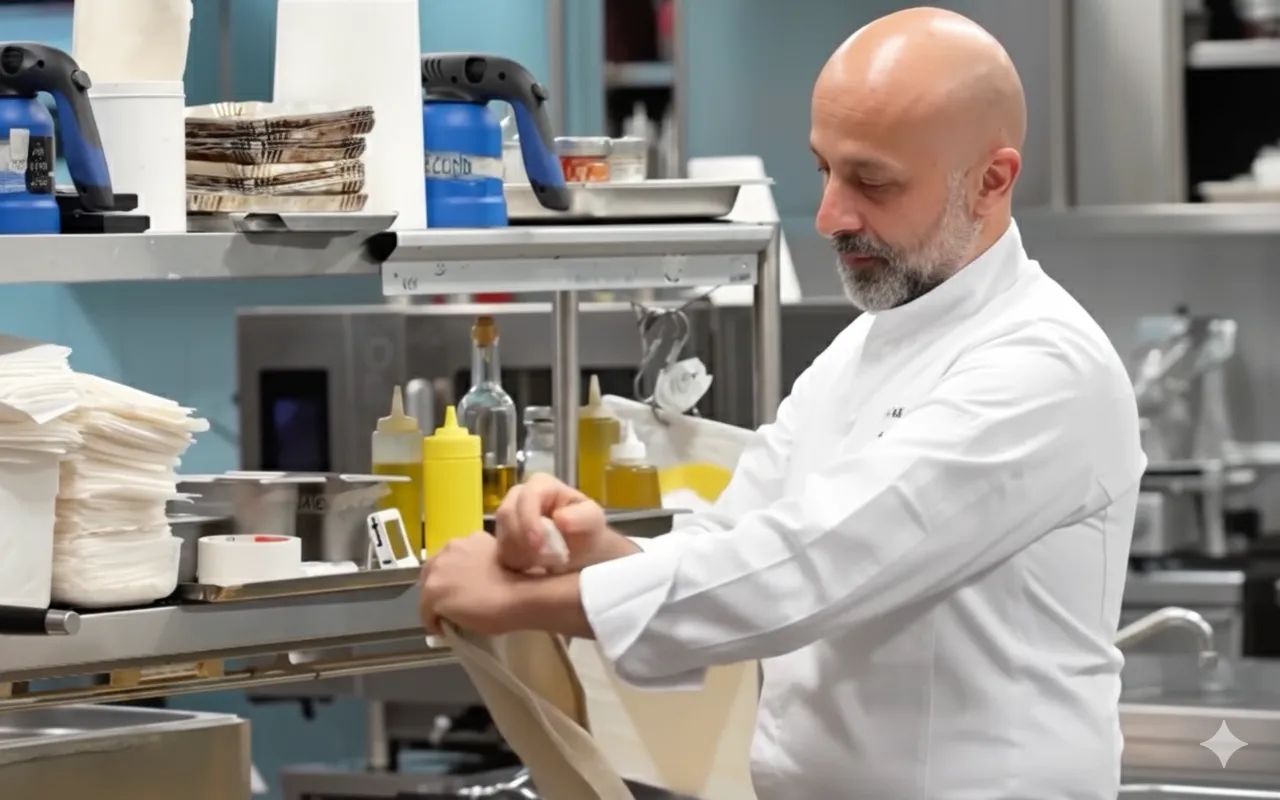
An A.I. generated image of Chef Niko Romito, founder of Accademia Niko Romito.
Key Points
Location: Castel di Sangro, Abruzzo
Languages Offered: Italian, English
Website: https://www.accademianikoromito.it/
Tuition: approximately €16,000 + VAT per person
Chef Niko Romito, the man behind the three Michelin-starred restaurant Reale, is the originator of the Niko Romito Academy. The institution offers a teaching plan that is extremely unique from the traditional ones. It is a chef at the height of his career who manages such a school. The school in theAbruzzo region, halfway between Rome and the Adriatic coast, has pledged itself to cook with lamb, saffron, and mountain herbs.
This is not a cooking school for beginners. The academy is intended for those who have already acquired some culinary skills and wish to improve them further. Applicants must pass an entrance exam to be admitted.
Programs
✅ The Accademia opens doors to two vocational culinary courses annually. The first one starts in March and the second one in October.
✅ The courses are open to those students who are below 35 years of age and have completed secondary education.
✅ Admission is done by taking a competitive entrance exam, for which getting the qualifying score is a must for eligibility to pass.
✅ There are no more than 16 students per group, meaning each student gets a chance to be focused on individually.
Program Structure (12 Months)
✅ 1 Month: Cooking theory classes.
✅ 1 Month: Staging at Restaurant Reale.
✅ 4 Months: Cookery classroom training.
✅ 6 Months: Internship at a restaurant.
Tuition & Scholarships
✅ Tuition: €16,000 + VAT.
The students with the top three scores of each course will be rewarded by getting scholarships:
✅ 1st place: €5,000
✅ 2nd place: €3,000
✅ 3rd place: €3,000
Learn more about Programs and fees in this brochure.
Language of Instruction
Italian. English versions of course materials and descriptions are also available.
Admissions
Send your resume along with a recent photo and a subject line “SELEZIONI CORSO PROFESSIONALE” to info@nikoromitoformazione.it or visit the Accademia Niko Romito website.
7. Italian Culinary Institute for Foreigners
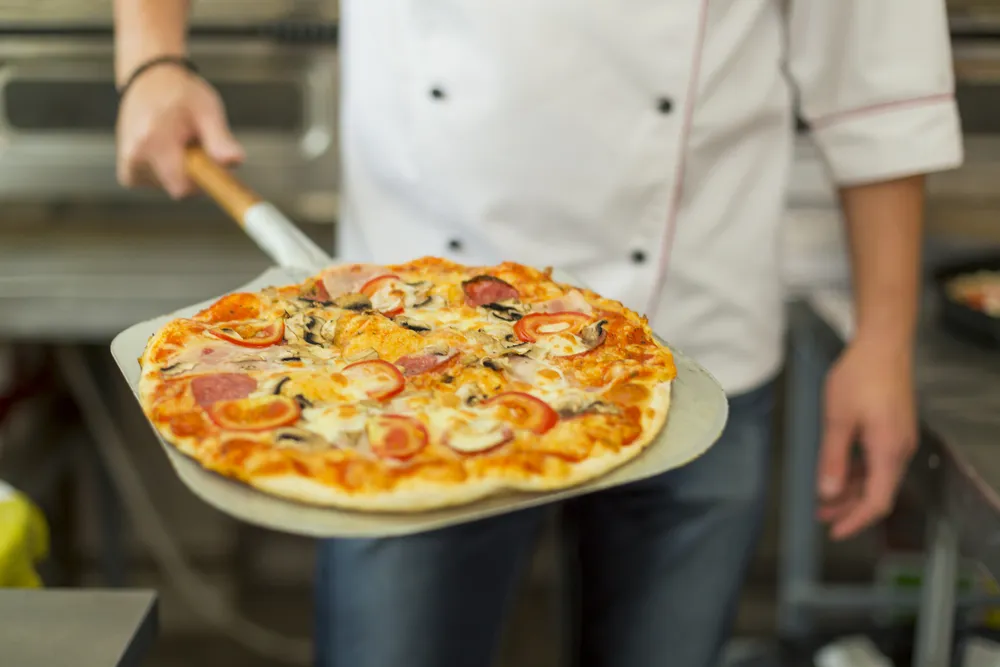
The Italian Culinary Institute for Foreigners (ICIF) offers a pizza making course that teaches students the art of crafting authentic Italian pizza.
Key Points
Location: San Maurizio Canavese, Turin
Languages Offered: Italian, English
Website: https://icif.com/en/
Tuition:approximately €1,000 to €5,950 depending on the program selected
The Italian Culinary Institute for Foreigners (ICIF) is located in San Maurizio Canavese, just outside Turin in the Piedmont region. This school was specifically created to teach international students authentic Italian culinary traditions, making it one of the few institutes in Italy designed exclusively for foreigners from the ground up.
ICIF offers flexibility that many culinary schools in Italy don't provide. Students can choose between short intensive courses or comprehensive long-term programs.
Short Courses / Themed Courses (1-3 weeks): Focused modules on specific skills including pizza, gelato, pastry, and Italian regional cooking. These are ideal for beginners or professionals wanting to add specialized techniques without long-term commitment.
Pastry Course: Multi-week intensive covering Italian pastry techniques, from classic desserts to modern applications. Hands-on training with tasting sessions included.
Pizza Course: A dedicated short module centered entirely on pizza making, from dough preparation to oven techniques. Includes accommodation, weekday meals, teaching materials, and uniform.
II Level Master Course in Italian Cuisine & Oenology (6 months): The flagship program runs approximately 9 weeks of theoretical and practical lessons at the school, followed by a professional internship. The curriculum covers regional Italian cuisine, wine and oil studies, plating and presentation, and culinary creativity.
Many ICIF courses include accommodation, meals during weekdays, uniforms, and teaching materials in the tuition fee. This makes budgeting simpler for international students and eliminates surprise costs.
Tuition
The Italian Culinary Institute for Foreigners (ICIF) provides a range of programs at different price points, including a 3-day Modern Culinary Techniques course for €1,000, a 4-day Great Leavened Products course for €1,300, and a 3–4 week Level I Master Course in Italian Cuisine and Oenology priced at €5,950.
Admissions
For detailed program information, schedules, and application procedures, visit the ICIF official website or contact them directly at their San Maurizio Canavese campus.
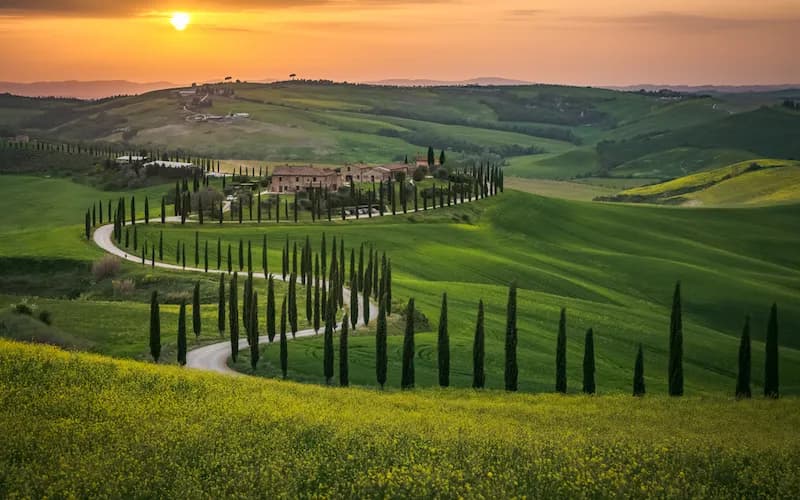
The picturesque Tuscany landscape in Italy. Culinary schools in Italy provide students with an immersive experience in Italian culture.
Conclusion
Italy is one of the best places in the world to study culinary arts.
With our selection of seven top culinary schools across different regions in Italy, international students can find the right mix of tradition, innovation, and career opportunities that suits their needs.
Studying culinary arts in Italy may mean obtaining a degree, but it can just as well mean immersing yourself in the culture, learning from world-class chefs, and gaining hands-on experience in authentic Italian kitchens.
If you're still undecided about which school to choose, consider factors like location, program length, language of instruction, and career support services.
If you wish to compare culinary schools in other countries, check out our articles on culinary schools in France, Switzerland, Spain, the United States, and Mexico.
Lastly, there's nothing wrong with recognizing if you don't currently have the means to study fulltime or travel abroad.
Or possibly, you may simply want to start learning the basics of Italian cooking from home, especially before committing to a full program in Italy.
In that case, consider our article regarding online cooking schools.
Whatever path you choose, we wish you the best as you continue to invest in your culinary education and career!
Buona fortuna e buon appetito!
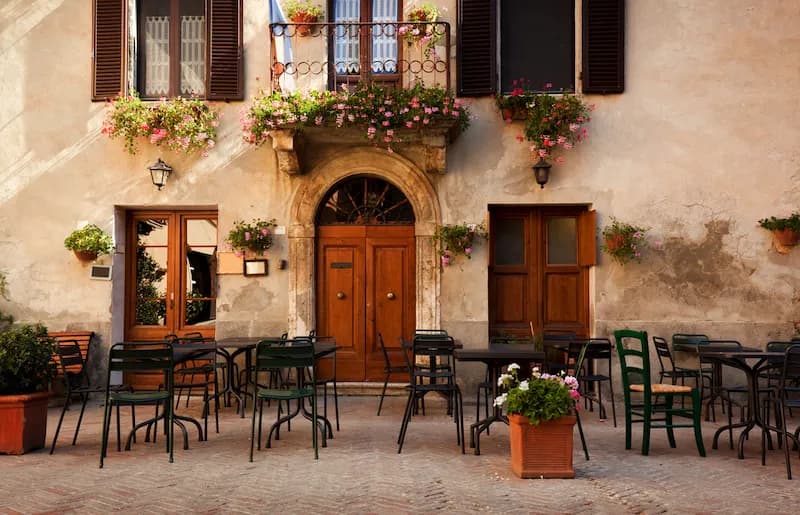
We ❤️ culinary schools in Italy!
©2025 Cocina Digital Hospitality Group, Inc. All rights reserved.
No part of this publication may be reproduced, stored in a retrieval system, or transmitted in any form or by any means, electronic, mechanical, photocopying, recording, or otherwise, without the prior written permission of the publisher.
We use cookies to enable you to use our site, understand how you use our site, and improve your overall experience.
Cookies allow us to personalize content, track which pages are most popular and least popular, and provide advertising that may be relevant to you.
Please note that cookies that are essential to the proper functioning of the site are required and cannot be disabled.
They are usually only set in response to actions made by you which amount to remembering your settings, a request for services, such as setting your privacy preferences, logging in, or filling in forms.
As such, they are the only cookies that are enabled by default.
You can set your browser to block or alert you about these cookies.
By continuing to use our site, you accept our use of cookies.